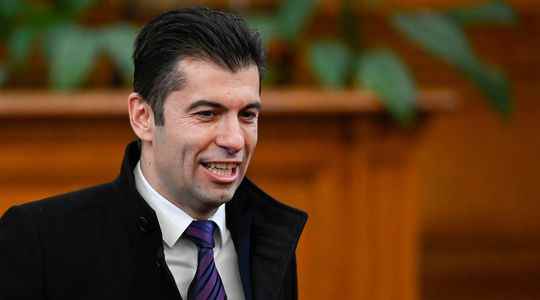Six months and then goes? Coming to power at the head of a motley coalition, raising the hope of eradicating the corruption that plagues part of the political class, Prime Minister Kiril Petkov was ousted by a motion of censure. This liberal and pro-European, a graduate of Harvard University, had nevertheless established himself as the standard bearer of a Bulgaria wanting to break with the decade that had just passed with, at the head of the country, the controversial and sulphurous Boyko Borissov. Wet in corruption scandals throughout his years in power, between 2009 and 2021, the former Prime Minister is now a leader of the opposition and intends to use this period of political turmoil to regain control of the country.
Adopted last week by 123 deputies (116 were against), the motion of censure could plunge Bulgaria into an institutional crisis. Voters had already been called to the polls three times since the beginning of the year. In this Balkan country of 6.5 million inhabitants, the poorest in the European Union, the prospect of a new election, which will probably take place unless Kiril Petkov manages to reconstitute a coalition, could bring about a return to Grace of Boyko Borissov.
Isolation
The reasons for this eviction are multiple, but they all have their foundations in the war raging in Ukraine. It “has accentuated the divisions, weakening the government”, slice Rouslan Stefanov, researcher of the Center for the Study of Democracy (CSD), with AFP. The coalition that had brought Kiril Petkov to power fell apart as Russian troops advanced. The Prime Minister lost the support of the anti-system party There is such a people (ITP), critical of the economic policies of a government unable to limit the soaring prices of everyday products, one of the consequences of the Russian invasion. Another source of discord: the delivery of arms to Ukraine. In the ranks of the government, the socialists refused to respond to kyiv’s demands, thus reinforcing the isolation of the head of state. Above all, it was the positons with regard to the Russian neighbor and Ukraine that got the better of Kiril Petkov.
Traditionally pro-Russian and close to the Kremlin, Bulgaria, which is also a member of the European Union, has aligned itself with European sanctions against the Russian oligarchs whose influence in the country is well established. This choice surprised both within the coalition and within the opposition. Despite its heavy dependence on Russian energy, Sofia also did not accede to the Kremlin’s request to open a ruble account for payment of its gas. Immediate consequence: power cut. A measure necessarily unpopular. In response, Moscow announced that it was considering withdrawing its embassy, a symbol of the tensions between two countries with hitherto friendly relations.
Reconciliation
If the strategy of rapprochement with Europe led the Prime Minister to be eclipsed, it was, on the contrary and surprisingly, dubbed during a historic vote in parliament on Friday. Since 2020, Bulgaria has blocked the launch of negotiations for the integration of North Macedonia and Albania into the European Union, after a historic dispute. The veto was therefore lifted.
A compromise had been negotiated, notably under the French presidency, in which North Macedonia undertakes to modify its constitution to include Bulgarians in the recognized ethnic groups, and to “implement” a 2017 friendship treaty aimed at to eradicate hate speech. This is a historic decision for both Europe and Bulgaria. A choice which fits more generally, with the return of the war in this part of Europe, in the question of the enlargement of the EU to the Balkans. At the crossroads of geostrategic issues and torn by domestic political dilemmas, Bulgaria is facing multiple challenges.
